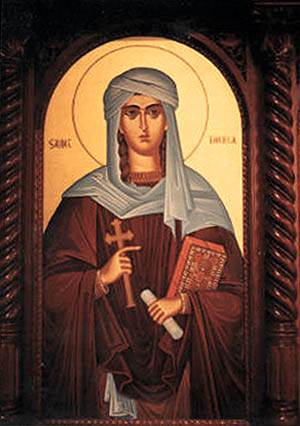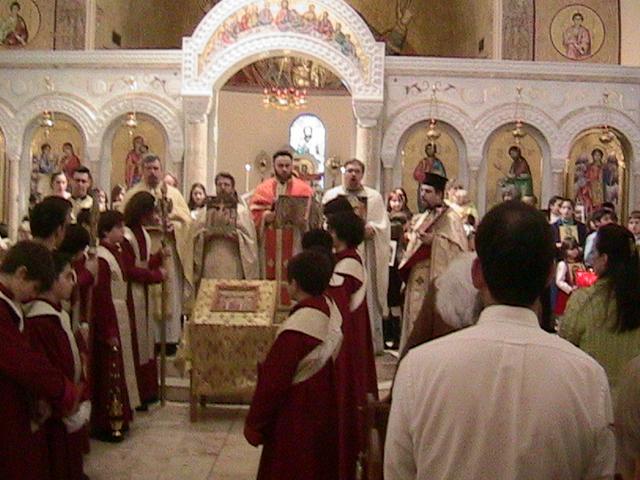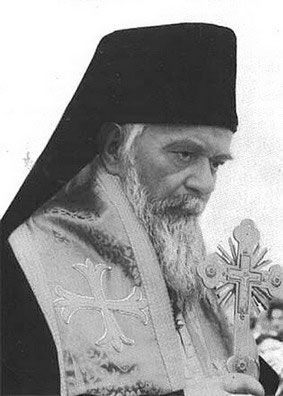
In the lesson which was read to us, dearly beloved, we
heard about the time when the people were destroyed in
the desert by serpents or basilisks, because of the pride
of the Jews and their murmuring against the Lord.[Numbers
21:9] Moreover, the Lord commanded Moses to make a
brazen serpent and hang it on a tress, so that anyone who
had been struck might look on it and be healed from death.
Although this serpent seems to be quite wonderful, dearly
beloved, still it prefigured the Incarnation of the Lord.
Perhaps this thought might seem difficult to some men, if
the Lord Himself had not spoken in the Gospel. Thus He
said: “As Moses lifted up the serpent in the desert, even so
must the Son of Man be lifted up.” [John 3:14] That brazen
serpent was then hung on a pole, because Christ was to be
hung on the cross. At that time whoever had been struck by
a serpent looked on the brazen serpent and was healed. Now
the human race which was struck by the spiritual serpent,
the devil, looks upon Christ with faith and is healed. If a
man had been struck and failed to behold that brazen
serpent, he died. So it is, brethren: if a man does not believe
in Christ crucified, he is slain by the poison of the devil.
Then, a man looked at the dead serpent in order to escape
the live one; now, if a man wants to avoid the devil’s
poison, he looks on Christ crucified.
By suffering death unjustly, Christ payed what Adam
justly owed. The latter stretched out his hand to sweet
fruits, the former extended them to the bitter cross; the one
points out the tree of death, the other the tree of salvation.
The one lifted himself up against God and fell; Christ
humbled Himself in order to raise up all men. Adam brought
death to everyone, Christ restored life to them all. At that
time each one who looked on the brazen serpent was healed
of the poisonous serpents. The brazen serpent which was put
on a tree overcame the poison of the living serpents; when
Christ hung on the cross and died, He suppressed the ancient
poison of the devil and freed all men who had been struck by
him.
O blessed cross which makes men blessed! O cross, from
which such great and wonderful fruits are gathered! The
fruit of the cross is a glorious resurrection. This fruit of the wood
is truly planted “near running water,” [Psalm 1:3] for Baptism is
always joined to the cross. However, this wood produced “its
fruit in due season,” at the Lord’s Resurrection. It will do so
again when He appears from heaven, “is seen on earth,” and with
the dazzling sign of the cross preceding Him, comes from above.
Then, the bodies of all men who are buried will rise again, and
then, “The faithful shall exult in glory.” Then those who are not
confounded now because of the cross of their King and Lord but
rather glory in it, “shall sing for joy upon their couches.” [Ps.
149:5] To Him is honor and glory together with the Father and
the Holy Ghost world without end. Amen.--
Caesarius of Arles

.svg/390px-OrthodoxCross(black,contoured).svg.png)











